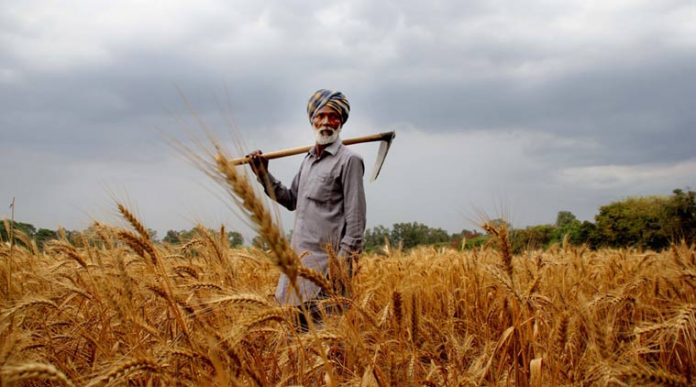This article has been written by Oishika Banerji of Amity Law School, Kolkata. This article provides a critical analysis on the reversion of the three farm laws as announced by the Prime Minister of India.
Table of Contents
Introduction
The three farm laws that had led to farmers outrage all across India, initiating a year of sustained protests by them, breathe a sigh of relief on 19th November, 2021 as Prime Minister Narendra Modi has agreed to their requests and stated that his administration will remove farm laws enacted by his government to reform the country’s agriculture industry. It was clear that India’s old system, which encouraged farmers to raise massive grain surpluses, needed to be changed. The protestors were concerned that the speed with which the regulations were approved, as well as the scope of the changes they entailed, would cause crop prices to plummet. Mr. Modi’s government contended that allowing market forces to operate would aid in the system’s repair. Although the farmers’ welfare has been of paramount consideration for the Indian Government, farmers seem to not be satisfied with the decision of the government as they are left further frustrated with India’s lack of attention to their needs. This has become a subject-matter of discussion for a few days now. This article aims to critically analyze the reversion of the three farm laws introduced by the Government of India.
The three farm laws introduced by the Government of India
The journey of the three farm laws, namely, The Farmers Produce Trade and Commerce (Promotion and Facilitation) Act, 2020, The Farmers (Empowerment and Protection) Agreement on Price Assurance and Farm Services Act, 2020 and The Essential Commodities (Amendment) Act, 2020 began on June 5, 2020, when the President of India promulgated three ordinances that served as the forerunners to these Acts. The purpose behind introduction of the aforementioned Acts has been provided hereunder:
- The Farmers Produce Trade and Commerce (Promotion and Facilitation) Act, 2020: This Act allowed farmers’ goods to be traded intra-state and inter-state outside of the physical premises of Agricultural Produce Market Committee (APMC) markets and other markets notified under the state APMC Acts.
- The Farmers (Empowerment and Protection) Agreement on Price Assurance and Farm Services Act, 2020: This Act established a national framework for contract farming by requiring a contract between a farmer and a buyer before any farm products are produced or reared.
- The Essential Commodities (Amendment) Act, 2020: It is an Act of the Indian Parliament passed in 1955 to assure the delivery of specific commodities or items whose supply, if disrupted due to hoarding or black-marketing, would have a negative impact on people’s daily lives. This includes food, medications, and fuel (petroleum goods), among other things. The Amended Act of 2020 empowers the Central Government to control the production, supply, distribution, trade, and commerce in certain commodities with an aim to increase competition in the agriculture sector, enhance farmers’ income, and liberalize the regulatory system while protecting the interests of consumers.
Politics has paralyzed the discussion over agricultural law, economics, and administration. As a result, it is necessary for legislators, administrators, economists, policymakers, and other concerned individuals to analyze how these laws have evolved. The three laws passed by the Parliament try to assist farmers in reaping economic benefits; nevertheless, they have been hampered thus far by antiquated legislation, manipulated markets, and entrenched interests-driven corruption. This is in addition to macro-factors such as India’s transition from food shortages to surpluses. Farmers in India were concerned that they would lose more than they would gain as a result of the new Farm Laws 2020, therefore they took their protest to the streets. After 11 rounds of unsuccessful talks between the Government and the Farmers’ representatives, on 11 January 2021, the Supreme Court stayed the implementation of the three Farm Acts 2020 and constituted a four-member Committee to make recommendations on the same.
The reason behind the reversion of the farm laws
Union Minister Piyush Goyal applauded the move to abolish three farm rules, claiming that it will improve the “climate of mutual concord” in society. Several other dignitaries across the nation have welcomed the Prime Minister’s decision as well. But what is the reason behind such a decision remains a question. Socio-economic as well as political reasons have equal weightage in answering such a question. The declaration comes just before important provincial elections in Uttar Pradesh and Punjab, where farmers are a powerful voting group. Hundreds of thousands of farmers have been protesting for months, potentially hurting Bharatiya Janata Party’s chances in both polls. The administration had so far refused to bend from its position, which the protestors claimed would jeopardize their livelihoods, resulting in the longest standoff since Prime Minister Modi took office seven years ago. While Prime Minister Modi has previously reversed policy decisions made by his administration, including on land laws, they had not resulted in long-running popular demonstrations like the year-long farmer’s protest.
Repealing of the three farm laws : aftermath
There are three major consequences that are assumed to take place because of the reversion of the three farm laws:
- Distress to farmers because of the lower water table in Central Punjab, rising air pollution resulting from farming practices, and misuse of free power supply to the farmers.
- Detrimental for investment in logistics and infrastructure which only private sectors could do.
- Uncertainty of assured MSP to farmers henceforth.
Water table going down in Central Punjab, rising air pollution and free power supply to farmers
- In the past two decades, the groundwater table in Punjab has been falling at the rate of 25-30 centimeters(cm) a year. The most common cause for groundwater extraction is for agricultural reasons, especially for water-intensive crops like wheat and rice. Wheat-rice agriculture accounts for 60 to 70 percent of Punjab’s total farmed acreage. The Central Pool’s reliance on groundwater is alarming as nine lakh tubewells pump out groundwater to irrigate and produce 60% of the wheat and 40% of the rice.
- Stubble burning is an important contributor to air pollution in and around Delhi. In 2020, the stubble burning in Delhi’s pollution had peaked at 42% on this day. In 2019, on 1 November it amounted to 44% of Delhi’s PM2.5 pollution.
- Tube wells are frequently said to include an auto-start switch. They start pumping water as soon as electricity is turned on, even if it isn’t needed. Various agricultural specialists have sneered at the free power supply, claiming that it is causing several states to waste a valuable resource. Punjab has an average of 34 tube wells per square kilometer of net planted land. The combination of a state policy of free power for agriculture and a central policy favorable to paddy production has resulted in indiscriminate groundwater exploitation. The situation has reached a tipping point, and a shift from current behaviors is required to ensure that the future generation has sufficient natural resources to use.
The three aforementioned points hint at the anticipated issues surrounding the agriculture sector of India which needs to be addressed immediately. The major prey to such rising issues which are being ignored by the Indian farmers will be the small and marginal farmers (farmers with landholdings of less than a hectare) in the near future. Taking note of the depleting level of groundwater in major pockets of grain production of India raises concern not only for that region but for the country as a whole. One cannot ignore the contribution of stubble farming in the increase in air pollution in and around the Delhi NCR region. The enforcement of the farm laws would have addressed these concerns taking into consideration the welfare of the Indian farmers.
Detrimental for investment in logistics and infrastructure which only private sectors could do
- If ten million investors participate in the agriculture sector, the government can easily generate more than $20 billion, which can be used to rescue Indian farmers from a life-or-death reliance on the monsoon or on generosity via minimum support price escalations, both of which have a negative impact on the budgetary position. It’s shocking that millions of Indian farmers’ fates are determined by the weather so many decades after independence.
- Crop storage facilities will allow farmers to sell when they choose, rather than being obliged to sell due to the risk of spoilage. The government’s initiative to develop an electronic national agriculture market, as well as recent revisions by the Securities and Exchange Board of India to introduce commodity options contracts, need to be supported by investment in irrigation and storage. Without such infrastructure, the agriculture industry of India would not be able to expand at a quicker rate.
- Achieving a long-term economic growth rate of ten percent or more will lift tens of millions of people out of poverty. The government had been making good progress. Investing in farm infrastructure can help India reach double-digit growth escape velocity.
The absence of effective logistics and infrastructure functions is the biggest detriment for the Indian agricultural sector. Even though a huge amount has been pumped into this sector by means of the 2021-2022 Union Budget, neither the government schemes nor various policies that have been brought about to ensure farmers’ welfare, can fulfill the need for potential infrastructure and logistics that are much required for the poor farmers of India. By means of these farm laws, the government was trying to connect private entities with the farmers so that the former could invest in building the required infrastructure by purchasing machinery, storage facilities, logistics, etc. For the government of a developing nation alone, it is not possible to fund the farmers thereby looking after all of their needs, for a long period of time. Private corporations would have smoothened the process if the laws were allowed to be implemented.
The future of the MSP demand by the farmers
The MSP guarantee became the major area of contention in the farmers’ protest. Farmers are concerned that permitting farm product commerce outside of the APMC may result in fewer purchases by government agencies in the permitted mandis. The protesting farmers claimed that the new legislation would render the MSP system obsolete, leaving them with no guaranteed income from farming. The three clear reasons as to why the government seems reluctant to the MSP system operating in India are provided hereunder:
- The MSP system is both politically and financially unsustainable for the government. According to some economists, India’s MSP system is one of the most expensive government food purchase programs in the world.
- Around 7,000 APMC mandis may be found around the country, where government entities such as the Food Corporation of India (FCI) buy farm commodities. However, due to a lack of funding, the FCI and other organizations are only able to acquire rice and wheat in practice. The FCI offers these foodgrains at a reduced price to Below-Poverty-Line (BPL) families through the Public Distribution System (PDS). This is a welfare-oriented or loss-making practice.
- The MSPs have been steadily increasing, causing the FCI to pay more for agricultural commodities and endure more losses since the PDS rates have remained nearly constant. Under the government’s current MSP system, growing food costs put pressure on the fiscal deficit in the annual budget. This is why, during the last few years, every administration has attempted to find a way out.
It is interesting to note that the procedure for granting MSP to the farmers every year is political and not legal in nature. This is because India does not have a codified farm law for assuring MSPs to farmers. This has always been a concern for the farmers of India. According to Anil Ghanwat, a member of the Supreme Court-appointed committee on agricultural legislation, if a law is passed ensuring Minimum Support Prices (MSP) for crops, the Indian economy will suffer a catastrophe. With the law, if the procurement process fails at some point, no one will be allowed to acquire the product since getting it for less than the MSP is prohibited, and dealers would be prosecuted. He further added that “we are not opposed to MSP, but we do believe that open-ended procurement is a concern. We needed 41 lakh tonnes of grains for buffer storage, but only 110 lakh tonnes were available. If an MSP legislation is passed, all farmers would demand MSP for their crops, and no one will be able to profit from it.”
The farm laws would have been a boost for the farmers as an investment in agriculture would have been more taking care of the basic needs of a farmer for production which would have automatically increased the income of the farmers. As the farmers perceived that the farm laws would have eaten them alive as the private entities would have come into play, the three farm laws could not see the light of the day.
Conclusion
It is disheartening to see that the government, even after a year of constant effort, failed to successfully communicate its policies and ideas by means of the three farm laws to the farmers of the nation. On November 24th, Bills to repeal the three new agriculture legislation were presented to the Union Cabinet for approval, and the same was approved subsequently. After the Parliament reconvenes for the winter session on November 29, the repeal Bills will be introduced.
Farmers, on the other hand, remain steadfast in their demand that the protest be ended in exchange for the fulfillment of their outstanding requests. The Samyukta Kisan Morcha (SKM) leader Balbit Singh Rajewal had said that they will send an open letter to Prime Minister Modi about their unmet requests, which include the mandate and membership of the MSP committee, the removal of proceedings against protesting farmers, and the Electricity Bill 2020. Farmers are also seeking restitution for those who died as a result of the demonstrations. Thus, even though the farm laws have been repealed, there remains a long undiscovered path that the government should adopt to make the lives of the farmers better.
References
- https://www.thehindu.com/news/national/analysis-farms-laws-repeal-decision-seen-as-fallout-of-farmer-protests-in-poll-bound-up-punjab/article37574318.ece.
- https://www.reuters.com/world/india/indias-modi-repeal-controversial-farm-laws-2021-11-19/
- https://byjus.com/free-ias-prep/farm-acts-2020/
- https://economictimes.indiatimes.com/news/india/centre-to-roll-back-3-farm-laws-says-pm-modi-in-his-address/articleshow/87792540.cms
Students of Lawsikho courses regularly produce writing assignments and work on practical exercises as a part of their coursework and develop themselves in real-life practical skills.
LawSikho has created a telegram group for exchanging legal knowledge, referrals, and various opportunities. You can click on this link and join:
https://t.me/joinchat/L9vr7LmS9pJjYTQ9
Follow us on Instagram and subscribe to our YouTube channel for more amazing legal content.
 Serato DJ Crack 2025Serato DJ PRO Crack
Serato DJ Crack 2025Serato DJ PRO Crack











 Allow notifications
Allow notifications


